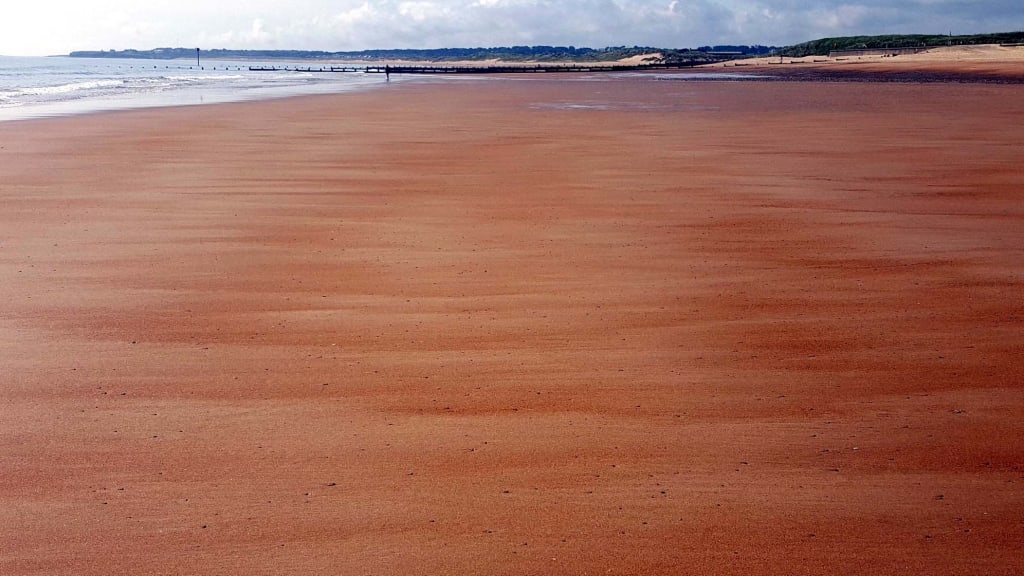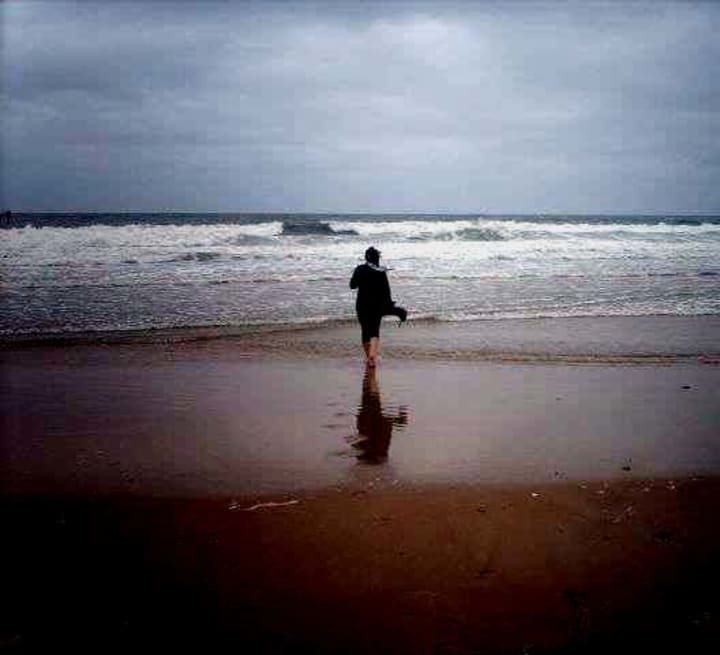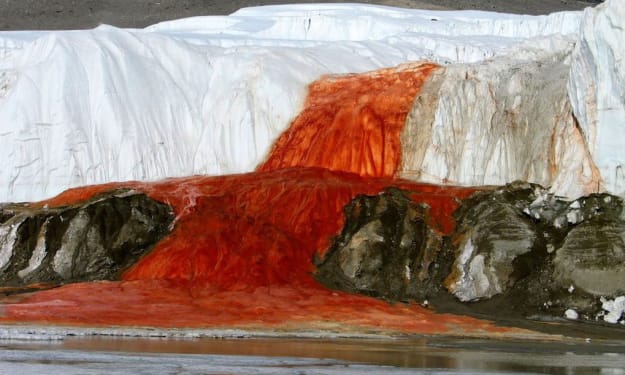
I've lived on the coast for most of my life, and I visit my local beach several times a month, but I don't take it for granted. Because I've seen what being at the seaside means to those from land-locked counties, miles from the coast, who rarely get to dip their toes into the sea. A punk band from West Yorkshire came over one weekend, and they specifically asked to see the sea. As soon as we got to the beach they removed their shoes and socks, rolled up their trousers, and in they went, splashing and laughing. It was November.
In a similar vein, an online acquaintance from a county deep inland happened to be visiting the area one day, so she called in to see me, and, at her request, we went for a walk along the beach. Even though it was bitterly cold, and the shallows were foaming, such was the force of the waves, my friend grabbed my arm to steady herself, and immediately kicked off her boots and peeled off her socks.
"What are you doing?" I said.
"I haven't seen the sea for three years, so I'm going in," she said.
"Well, I just saw it last week, so I'll stay here and mind your things," I said.
There was that almost magnetic attraction at play again.

For most of us though, there is enjoyment to be had in paddling in the shallows on a hot summer's day. But living on the coast is not all sun, sea and sand. Here are five of the less desirable aspects of coastal living.
Sea Frets
I remember as a small boy, going on a trip to the beach with my parents. In my swimming trunks (although I couldn't yet swim), I let the waves roll over my feet, and I set about building a sandcastle, with assistance from my brother. Then everything was suddenly ruined. A strange mist crept in directly from the sea. It was thick enough to impede visibility, but even worse, it was damp and cold. I could hear the waves gently breaking, but I couldn't see them any more. We pulled our clothes back on, and headed for a beachside cafe. The scene had an eerie, Scooby Doo feel to it, which was reinforced when the foghorns started up, which brings me to item number two.
Foghorns
As technology has advanced, the need for audible warnings of danger to shipping has receded. Indeed, my local foghorn has been silent for over a year now. But back in the day, it would miserably drone away at great volume, without regard for how late or early it might have been. On a balmy summer's night, with the bedroom window open, I would sometimes hear three foghorns running simultaneously as I tried to sleep; the deep bass of my local one (Blyth), the mid tone of the Tyne horn, and a distant, high-pitched one coming from I know not where. The joke ran that if you listened carefully, you could hear them perform Bohemian Rhapsody.

Jellyfish
I'm knocking on wood here, but I've never been stung by a jellyfish. I've swam and paddled in the sea many times, but I've never come into contact with one. Yet, during the summer they are quite prevalent, drifting along in the shallows. Their near-transparency makes them difficult to see, which makes it even more surprising that incidents of people being stung are rare. Sometimes, hundreds of jellyfish get washed up onto the beach, where they perish in the sun. During these times, the barefoot wanderer must perform a delicate tiptoe manoeuvre to avoid getting their tootsies stung.
Seagulls
During the summer months, I'm faced with the dilemma of leaving my bedroom window open for comfort, or closing it to shut out the noise of the seagulls, who are very early risers. The gulls build their nests between chimneys on the rooftops of houses, and so in the summer, when there are chicks and fledglings about, the streets come alive before dawn, with a cacophony of screeches, squawks, and that odd ak-ak-ak noise gulls make, which sounds like Popeye laughing.
Dead Things
With the sea being so vast, and the tide coming in and going out twice a day, all manner of items get washed up onto the beach, including dead things. These can be quite large, and sometimes they are in an advanced state of decomposition. Only recently, the rotting carcass of a 36-foot long juvenile humpback whale (nicknamed Humpy when he was alive) washed up on the beach close to where I live.
There's nothing we can do to stop these incidents, as these chunks of festering flotsam just appear out of the blue. Burt Lancaster and Deborah Kerr might have had their shenanigans in the shallows cut short, had a deceased and decaying porpoise washed up beside them. And Lieutenant Colonel Bill Kilgore may have had to add to his famous beach line, saying, "I love the smell of napalm in the morning. Humpy, not so much."
So, with all of those down sides to coastal living, would I ever consider moving inland?
Possibly, when the North Sea freezes over.
(Originally published in Medium)
About the Creator
Joe Young
Blogger and freelance writer from the north-east coast of England






Comments
There are no comments for this story
Be the first to respond and start the conversation.